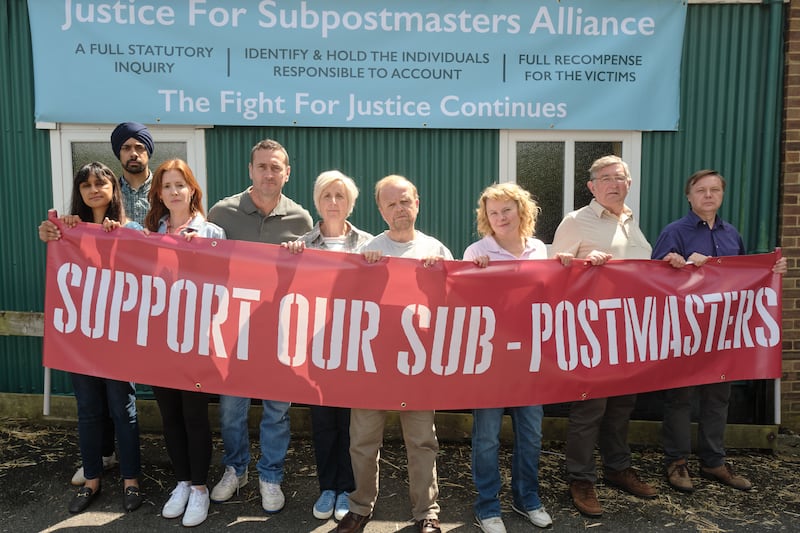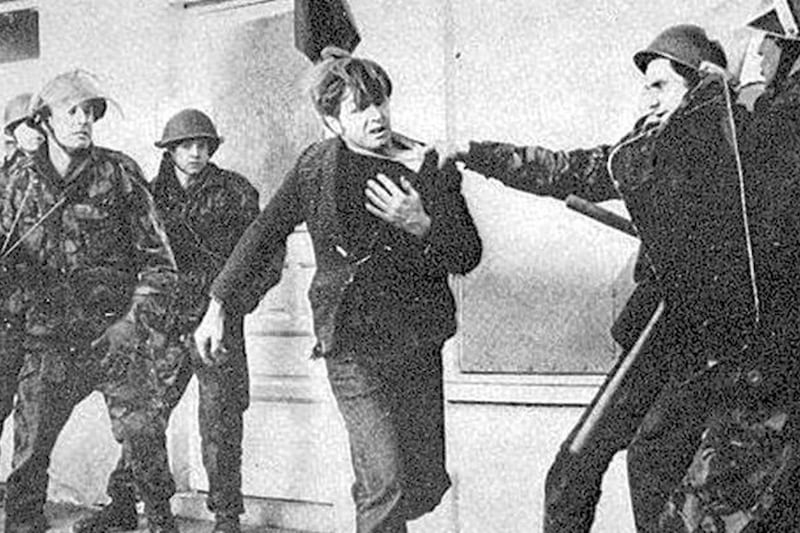As the cost-of-living crisis continues to impact society, one of the first victims of government cuts is invariably the arts. Some argue at such times that the arts are an unnecessary luxury, but the phenomena of the docu-drama Mr Bates vs The Post Office proves that sometimes it’s only via ‘the arts’ that the truth can be seen.
The scandal involving Fujitsu’s faulty Horizon software for the Post Office, which led to sub-postmasters being accused of theft, was known for years. However, it wasn’t until their plight was dramatised and televised that the public finally appreciated the magnitude of the injustice.
- ‘They asked if we were giving money to paramilitaries’ - former Tyrone subpostmistress recalls horror of Horizon investigationOpens in new window
- Post Office investigator denies acting like ‘Mafia gangster’ with subpostmasterOpens in new window
- Fujitsu could have to repay ‘fortune’ spent on Horizon scandalOpens in new window
This resulted in the Prime Minister announcing in Parliament this week that his government would remedy what he called “one of the greatest injustices in British history”. So intent is Sunak to exonerate those wrongly convicted that he’s enacting legislation instead of allowing their cases to go through the court system as normal.
Fortunately for the writers of the docu-drama, the story of the scandal was Shakespearian in nature, involving an injustice perpetrated by a large and powerful organisation on the powerless.

The main characters appeared to have walked straight from central casting, the villain being the career-driven former CEO, Paula Vennells, whose heartless campaign of terror helped drive some employees into bankruptcy, prison and, in one instance, a suicide. The hero-antagonist was plucky one-man campaigner, Alan Bates, who spent decades working to prove the fault lay not with his fellow sub-postmasters, but with the Horizon software installed by Fujitsu.
To add a touch of extra sauce to the mix, we had a subsequent subplot where the disgraced Vennells received a CBE for her ‘work for the Post Office’. Vennells finally handed back her CBE during the week, after one million people signed an online petition demanding she be stripped of the unearned award.
While I applaud Mr Bates, whose indefatigability led to the righting of this injustice, I must admit I was taken aback to hear the case described as the “worst injustice in British history”.
I must assume they meant the worst case of British injustice perpetrated on the big island as I can think of innumerable cases of British injustice on this island which would make the Post Office case appear inconsequential in comparison. Instead, I will limit myself to an injustice inflicted on my own family.
Rishi Sunak, in addressing the Commons, stated: “This is one of the greatest miscarriages of justice in our nation’s history. People who worked hard to serve their communities had their lives and their reputations destroyed through absolutely no fault of their own. We will make sure that the truth comes to light, we right the wrong of the past and the victims get the justice they deserve.”
While I applaud Alan Bates, whose indefatigability led to the righting of the Post Office injustice, I must admit I was taken aback to hear the case described as the “worst injustice in British history”. I must assume they meant the worst case of British injustice perpetrated on the big island as I can think of innumerable cases of British injustice on this island which would make the Post Office case appear inconsequential in comparison
Fifty-one years ago, my late father – an elected Belfast City Councillor - was arrested along with 342 other men on August 9 and interned without charge, trial or conviction.
He spent almost two years incarcerated before being released without ever being charged, sent for trial, or convicted of any crime. His treatment was Kafkaesque even by the version of British justice which operated on this side of the Irish Sea, for in essence he was a victim of state kidnapping.
- While nationalists were responsible for making NI unworkable in the last century, that torch has now passed to the DUPOpens in new window
- Jake O'Kane: Comedy was a godsend – becoming a priest or a politician would have been disastrousOpens in new window
- The carnage on our roads means we need to slow down and wise upOpens in new window
His case perfectly fits Sunak’s description as he had served his community for many years as a councillor. His life and reputation were destroyed as the thriving business he left was virtually bankrupt when he returned. His reputation was most certainly marked by his imprisonment, proved by the numerous subsequent attempts on his life.
With the passing of this government’s legacy legislation I realise there’s no chance my father will ever be exonerated nor have his good name returned. This is yet another injustice as he was a man of character and conviction, evidenced by how he reacted when offered his freedom by the Brown Commission set up by the government of the time to vet detainees they deemed suitable for release.
My father’s life and reputation were destroyed as the thriving business he left was virtually bankrupt when he returned. His reputation was most certainly marked by his imprisonment, proved by the numerous subsequent attempts on his life
Whilst acknowledging his complete innocence the commission demanded as a prerequisite for his release that he sign an oath to never engage in violence. My father refused sign what he termed a “repugnant oath” as to do so would be a tacit admission he’d done something wrong. He remained in Long Kesh for a further four months.
On the odd occasion he brought up this defiant stand against the state, I joked his refusal to sign the oath was more due to him enjoying being away from us and mother.









